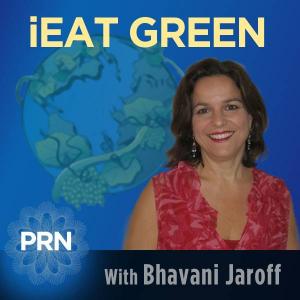
Didi Pershouse is the founder of the Center for Sustainable Medicine as well as the Land and Leadership Initiative, an online school. She is the author of two books: The Ecology of Care: Medicine, Agriculture, and the Quiet Power of Human and Microbial Communities, and Understanding Soil Health and Watershed Function. She grew up in a family of high-tech medical pioneers working in radiation and brain surgery. Seeing the often destructive effects of their work first-hand led Pershouse to pioneering work of her own: she developed a practice and theoretical framework for systems-based ecological medicine—restoring health to people as well as the social and ecological systems around them.
Her sliding-scale practice included community acupuncture, nutrient-dense diets, and resiliency counseling. When the Ecology of Care was published in 2016, her practice became a model for others, as she connected the dots between soil health and public health, and the role of beneficial microorganisms in maintaining a healthy climate both inside and outside the body.
Her work turned increasingly towards engaging patients and the public in conversations about the relationships between soil health, shifting weather patterns, capitalism, and human health.
In 2017 she published a facilitator's manual that has been used in over 40 countries, and was one of five speakers at the United Nations-FAO World Soil Day.
After 22 years of clinical work with patients, Pershouse now travels widely, leading participatory workshops on the soil sponge: the living matrix that makes life on land possible. Her teaching and facilitation engages farmers and ranchers, schools, policy makers, investors, and environmentalists in building multi-stakeholder working groups to reduce flooding and drought, improve local economies, and improve soil health, public health, and climate resiliency through changes in land management. She is the board chair/president of the Soil Carbon Coalition.
In the spring of 2018, she helped launch the "Can we Rehydrate California?" and "Soil Sponge" initiatives with a series of workshops throughout the United States.
She also leads retreats that develop and support resilient leadership in the environmental movement. She bases her work on three fundamental principles borrowed from the Benedictines: on one end is stability/commitment, in the center is deep listening, and on the other end is flexibility in thought and action.
Vegetable Curry Quinotto
To serve 4 to 6
- 1 cup red and white quinoa ( ½ cup each)
- 1 onion, chopped
- 6 cloves garlic, minced
- 1” piece ginger, grated
- 2 carrots, diced
- 1 organic yellow pepper, diced
- 2 cups small broccoli florets
- 2 cups bok choy, chopped
- 2 cans organic Coconut milk
- 2 teaspoons Curry powder
- 2 teaspoon Red Curry paste
- Salt and pepper
- 1 Tbs. Coconut oil
- Cilantro for garnish
Preparation:
Rinse quinoa and cook according to directions.
In a wok over medium heat, add the coconut oil. When hot, add the chopped onions, and cook until translucent. Add the carrots, garlic and ginger and cook for a few more minutes. Add the peppers and broccoli and continue cooking until soft. Add the bok choy and cook another 3 minutes. In a small bowl, mix the curry paste with the coconut milk, and then add to the wok. Add the curry powder, and salt and pepper. Add the cooked quinoa and continue cooking for another 10 minutes, stirring often, allowing the quinoa to absorb the coconut milk and curry flavor. Garnish with cilantro.
More Episodes
 2016-04-21
2016-04-21
 947
947
 2016-04-14
2016-04-14
 721
721
 2016-04-07
2016-04-07
 682
682
 2016-03-31
2016-03-31
 1.1k
1.1k
 2016-03-10
2016-03-10
 865
865
 2016-02-11
2016-02-11
 934
934
 2016-01-28
2016-01-28
 973
973
 2016-01-21
2016-01-21
 973
973
 2015-12-03
2015-12-03
 1.4k
1.4k
Create your
podcast in
minutes
- Full-featured podcast site
- Unlimited storage and bandwidth
- Comprehensive podcast stats
- Distribute to Apple Podcasts, Spotify, and more
- Make money with your podcast
It is Free
- Privacy Policy
- Cookie Policy
- Terms of Use
- Consent Preferences
- Copyright © 2015-2024 Podbean.com





